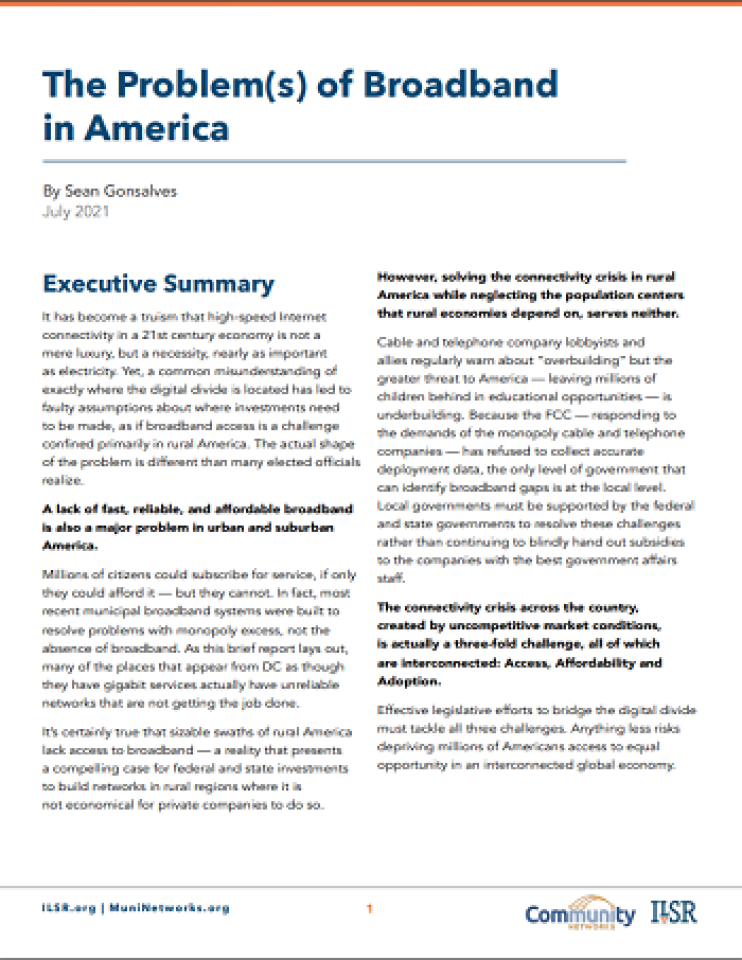Crowdsourcing Data, Fighting for Competition and Digital Equity - Episode 467 of the Community Broadband Bits Podcast

On this week’s episode of the Community Broadband Bits podcast, Christopher Mitchell is joined by Sascha Meinrath, Palmer Chair in Telecommunications at Pennsylvania State University and Director of X-Labs.
The two discuss an exciting collaboration they are working on with Consumer Reports and other allied organizations that crowdsources monthly Internet bills from actual users. The aim of the project is to look at the differentials in the speeds and prices ISPs offer across a variety of geographical locations to see if there is a correlation around race, class, and location. The findings will hopefully clarify the problems and solutions around digital equity and steer policy-making, regulatory authority and consumer protection law conversations to improve Internet access for all.
The two step back to talk about the bigger picture with current events, specifically the Biden Administrations most recent executive order encouraging the Federal Communications Commission and Federal Trade Commission to restore net neutrality.
This show is 32 minutes long and can be played on this page or via Apple Podcasts or the tool of your choice using this feed.
Transcript below.
We want your feedback and suggestions for the show-please e-mail us or leave a comment below.
Listen to other episodes here or view all episodes in our index. See other podcasts from the Institute for Local Self-Reliance here.
Thanks to Arne Huseby for the music. The song is Warm Duck Shuffle and is licensed under a Creative Commons Attribution (3.0) license.



